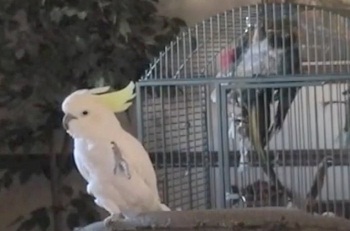Researchers have become convinced that Snowball, a YouTube sensation, and perhaps other animals, share humans’ sensitivity to music. He certainly has his own moves.
When a small group of scientists first saw it a decade ago, they knew that it was more than entertaining. If it was real, it offered the first genuine support for a claim Darwin had made 148 years ago, but never proven: that animals perceived and enjoyed music as much as we did.
Now, the team has published their findings, showing that Snowball can not only groove to music without explicit training, but he’s got his own dance moves.
“This suggests that sensitivity to music or capacity for music or musicality is shared among more animals than only humans and might have a long evolutionary history,” said professor of music . He said research on Snowball’s dancing persuaded him that musicality is an inborn, biological ability, like language, rather than a learned one, like reading.
“If musicality is something that our brain has been shaped to do, that does speak to people’s questions about what human nature is,” said Doctors. The research also raises the question of whether humans have evolved brain specializations for processing music, as we have for language.
Lara Khouli

